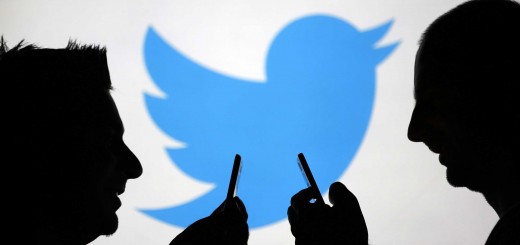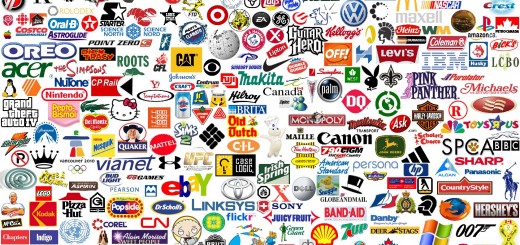How deep do brand values and company ethos go?
The 2016 US Presidential Election wasn’t America’s election alone. Everyone around the world followed it with baited breath, consuming everything from the near-daily scandals to the witty outtakes of late night show hosts in the weeks leading up to the election results. While the consequences of the results on the global economy are still largely uncertain, what is now known is how deeply divided people feel based on their age, race, gender and political preferences.
As marketers, we tend to use similar divisions to form segments and sub-segments to make our messaging easier to craft and clearer to understand when defining a brand. Despite this, we tend to go the extra mile to define a brand’s values and a company’s ethos. While on one end these act as the guiding star for any kind of work a team does, on the other end it is these very definitions that connect the various segments and sub-segments with potential employees a company wishes to appeal to.
These definitions span a wide spectrum. From a statement that motivates like ‘Unending Hope in the face of adversity’ or ‘Respect for the self’ to a value-driven abstract like ‘Inclusive Behavior for all’ or ‘Breaking Stereotypes of the past’; most iconic brands (both old and new) have carved out an identity by defining their core values and ethos well.
Not only has the implications of the Presidential Elections challenged brands to stand up for bigger, more progressive values, it has also infringed on the ethos of organisations that have been built on inclusion, diversity and meritocracy. The effects are so profound that brand custodians have been forced to not only introspect, but also provide a retort about it. We are seeing unprecedented behavior that is redefining how deeply a brand can and should believe in its values and ethos.
Tic Tac and Skittles were the first brands dragged into several distasteful conversations, and subsequently forced to listen, assimilate and react.
In the first 13 days of Donald Trump’s presidency, brands and their CEOs have reacted in ways never seen before. After President Trump unveiled his executive order banning immigrants from seven predominately Muslim nations (including Indonesia), there was outrage everywhere, not just in America. And the way in which several brands stepped up against the orders really goes to show the deep belief that their custodians have in these core values.
The reactions that we saw from brands, however, were wide ranging.
Some brands, for instance, were quick to protect and defend their brand value. A case in point would be Starbucks, who announced plans to hire 10,000 refugees in their outlets all over the world. As explained in a personal note by Starbucks Chairman and CEO Howard Schultz, providing opportunities was a core value that the organisation believed in. Opportunity as he defined, spanned from supporting farmers in Mexico to helping young people land their first job and providing for those who were looking to make a fresh start in America. If the 5 February Super Bowl was any indication, we can expect many more brands joining in, making bold statements about policy and politics through their adverts in no time.
Then there are some extremely brave brands who have gone on the battlefield to protest against the infringement of these values. Falling in this bracket are Amazon, Expedia and Microsoft, all of which are supporting the Washington State lawsuit against President Trump’s immigration order. Both Google CEO Sundar Pichai (an immigrant from India) and Co-Founder Sergei Brin (a Soviet Union born immigrant and refugee) also delivered stirring speeches at the Google Headquarters, urging their fellow employees to join the resistance. As a sign of protest against the order, thousands of Google employees stopped work and staged a walk out as a sign of protest against the order. #GooglersUnite quickly became a top trending topic on Twitter by the end of the day.
At last count, more than a 100 brands had joined in the fight against the executive order banning immigrants from seven countries.
For the longest time, brand values and company ethos had stayed in the background, only made known to the brand managers, agencies and employees to know, follow – and to be embodied in the work that was put out.
What we are witnessing instead, is a dramatic shift in the importance of these values as a result of design rather as a reaction to the sudden change in America’s political environment. It was far more common for celebrities to weigh in with their personal political opinions, for brands to weigh in on hot-button issues concerning humanity, but never before have we seen such a combination of emotional outpour by head honchos of organisations with actionable steps taken by corporations to oppose government policies.
This raises several important questions:
1. Is this reaction from brands purely based on emotions or is it an indication of a changing landscape in our industry? Are the brands (and their CEOs) of today ready enough to be change agents, going beyond the issues that directly connect with their products and categories? Are we crossing a milestone where it is no longer enough for brands (and their CEOs) to issue a ‘strongly worded condemnation letter’? Are consequently, are the consumers of today looking up to us, our brands and its leaders to play an equal part in the building a better tomorrow?
2. Will this phenomenon lead to a larger domino effect of brands and organisations of all sizes stepping up to protect the values of the larger society, not just the rights of their consumers?
Whatever the answer might be to these questions, the need of the hour is a true, collective uprising to protect, defend and protest the very values that make us human.
The post How deep do brand values and company ethos go? appeared first on Digital Market Asia.





